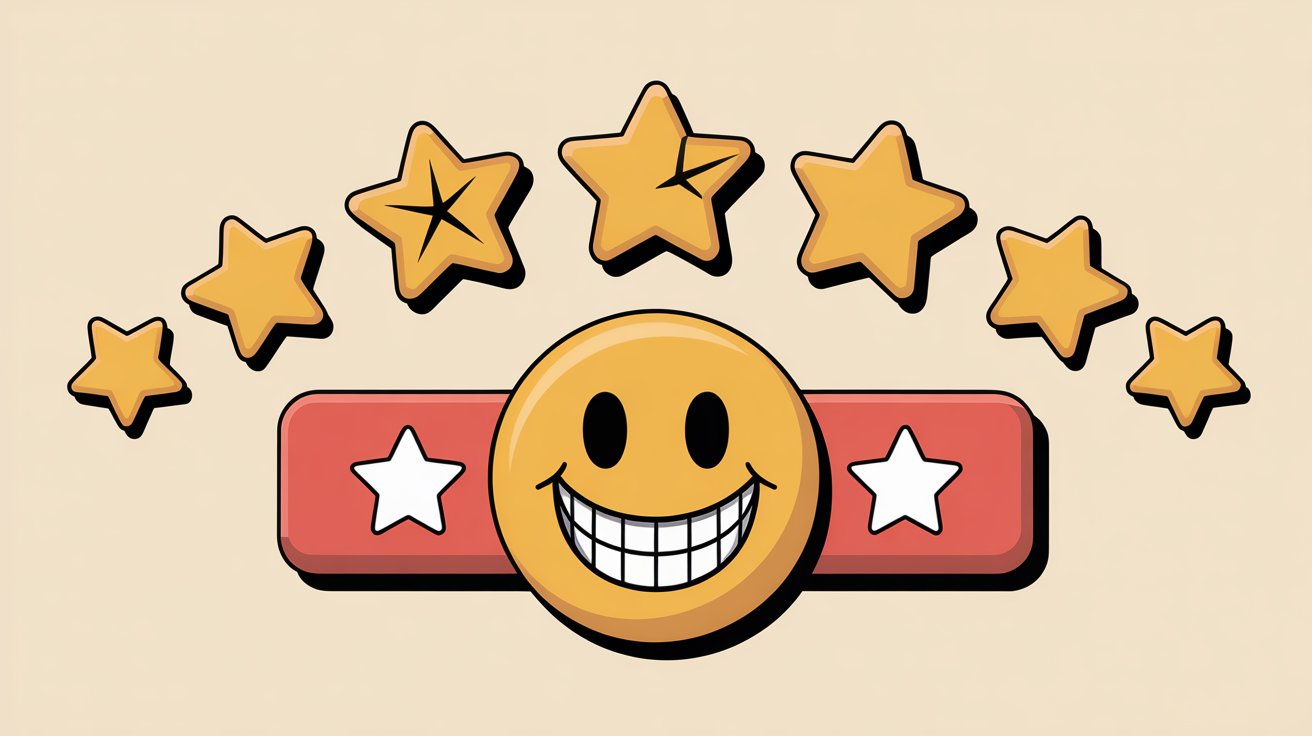
July 11, 2025
Toxic Positivity in Reviews: How Overly Positive Feedback Undermines Credibility
In a world driven by stars, likes, and testimonials, positivity is currency.
But what happens when that positivity becomes too perfect to be real?
Welcome to the problem of toxic positivity in reviews—a phenomenon where overly enthusiastic, sugar-coated feedback hides flaws, silences real critique, and slowly poisons trust in platforms, products, and even people.
This isn’t just a problem of fake reviews—it’s about psychology, incentives, and the way review systems reward appearance over authenticity.
Let’s dig in.
🌟 What Is Toxic Positivity in Reviews?
Toxic positivity in the review ecosystem refers to:
- Inflated praise that lacks substance
- Reviews written to please rather than inform
- Overcompensation due to guilt, incentives, or fear of conflict
- A feedback loop that discourages honest criticism
This form of positivity may seem harmless, but it undermines the very purpose of a review: to inform, evaluate, and warn when needed.
🎁 The Role of Incentivized Reviews
Many platforms offer rewards for reviews:
- Discount codes
- Bonus points
- Free products
- Early access
While this can boost volume, it often dilutes quality and truth. Here's how:
🎯 1. Implicit Pressure
Even if a reviewer isn’t told to leave a positive review, the exchange of value creates an expectation. The user feels obligated to say something nice.
🎯 2. Guilt Avoidance
People don’t want to seem ungrateful. If they received something for free, even a flawed experience can get glossed over.
🎯 3. Self-Justification
The reviewer may subconsciously inflate praise to justify their own decision, especially if they paid for something expensive.
🧠 Reviewer Psychology: Why People Go Too Positive
Reviewers are often caught in an emotional maze:
🤝 Reciprocity Bias
“If they gave me something, I owe them a kind word.”
😨 Fear of Backlash
Especially in small communities or platforms where authors, sellers, or business owners can retaliate.
😔 Avoiding Conflict
People shy away from confrontation. It feels better to leave a happy review than risk debate.
🤩 Social Approval
Leaving glowing praise makes users feel liked, approved, and part of a happy crowd.
The result?
A tidal wave of 5-star reviews that don’t actually reflect reality.
📉 The Fallout: How Trust Erodes Over Time
Toxic positivity has a cumulative impact:
🔎 1. Review Inflation
When 5-star reviews become the norm, anything lower seems like a disaster—even a 4-star rating can appear suspicious.
🤨 2. Reader Fatigue
Users begin to ignore positive reviews altogether, digging deep for the rare 1- or 2-star posts just to find a critical voice.
🔻 3. Platform Distrust
If the review section feels artificially happy, users stop trusting the platform, not just the product.
🤯 4. Decision Overload
Too many glowing reviews leave readers unable to distinguish between good, great, and terrible—they all sound the same.
Wyrloop Insight: Review consistency matters more than ratings. A diverse range of honest experiences builds trust far faster than a sea of artificial praise.
🧪 Signs of Toxic Positivity in a Review Section
You can spot these traits on almost any review-heavy platform:
- Identical 5-star reviews that repeat phrases like “Amazing service!” or “Highly recommend!!!”
- Reviews with no specifics or examples
- Overuse of emojis, exclamation marks, and hyperbole
- Lack of 3-star or mixed reviews in the listing
- Clusters of positive reviews posted all at once (often after a campaign or incentive push)
These are red flags that something is being skewed.
⚖️ The Ethics of Encouraging Positivity
Many brands intentionally foster toxic positivity because:
- It drives conversion
- It “looks good” on landing pages
- It boosts algorithmic rankings
But the ethical line blurs when:
- Negative reviews are filtered, shadow-banned, or moderated unfairly
- Reviewers are only prompted to post after positive moments
- Criticism is punished or ignored
Review systems should enable honesty—not curate an illusion.
🧱 Building Review Systems That Encourage Honest Balance
Here’s how platforms can stop the toxic positivity spiral:
✅ 1. Ask Better Questions
Instead of “Rate your experience,” ask:
- What surprised you (good or bad)?
- What would you change?
- What should others know before trying this?
✅ 2. Allow and Highlight Middle Ratings
Make 3-star or “neutral” reviews just as visible as 5-stars. Feature mixed feedback in top listings.
✅ 3. Label Incentivized Reviews Clearly
If someone was rewarded to post, mark it. Transparency matters.
✅ 4. Separate Product and Seller Feedback
Sometimes the service is great, but the product isn’t—or vice versa. Let users split their ratings.
✅ 5. Enable Editing and Follow-Ups
Let users update their reviews after more time with the service or product. It gives room for nuance and growth.
🔄 The Feedback Loop of Trust
Platforms that allow honest, diverse, and even negative feedback are more trusted long-term.
Users learn:
- That their voices matter
- That the platform isn’t rigged
- That future reviews will be helpful
This builds repeat engagement, brand loyalty, and credibility.
🔐 What Wyrloop Does to Prevent Positivity Bias
At Wyrloop, our system is built for balanced, thoughtful reviews.
We:
- Encourage reviewers to include pros and cons
- Detect and tag mass incentivized campaigns
- Down-rank reviews with zero substance
- Highlight reviews that generate community discussion
- Show a “Review Spectrum” to display sentiment balance
We believe reviews aren’t ads—they’re conversations.
🧠 Final Thoughts: A 5-Star Lie Helps No One
If your product, platform, or service really is great—it will shine through even without inflated praise.
Toxic positivity isn’t about kindness.
It’s about creating an illusion that hurts trust, damages user confidence, and drowns out real feedback.
Encourage warmth—but embrace honesty.
Praise what’s good—but don’t fear what’s not.
The best reviews are the ones that feel real.
💬 Have You Left or Read a Review That Felt “Too Good”?
Was it deserved, or did it seem forced?
Share your review stories with Wyrloop—and help us build a review culture that values honesty over hype.